Methylphenidate Hydrochloride, extended release tablets, 18 mg, 36 mg and 54 mg, Concerta November 2006
Public summary document for Methylphenidate Hydrochloride, extended release tablets, 18 mg, 36 mg and 54 mg, Concerta
Page last updated: 02 March 2007
Public Summary Document
Product: Methylphenidate Hydrochloride, extended release tablets, 18 mg, 36 mg and
54 mg, Concerta
Sponsor: Janssen-Cilag Pty Ltd
Date of PBAC Consideration: November 2006
1. Purpose of Application
The submission sought a Section 85 listing of methylphenidate hydrochloride extended release tablets as an authority required benefit for the treatment of attention deficit hyperactivity disorder in children and adolescents.
2. Background
The Concerta formulation of methylphenidate hydrochloride extended release tablet
(MPH-CR) was considered by the PBAC for the first time at its March 2006 meeting.
The PBAC rejected the submission because of uncertain extent of clinical benefit over
the comparator, methylphenidate immediate release (MPH-IR), and uncertain and unacceptable
cost-effectiveness at the price proposed.
The PBAC considered a minor re-submission at its July 2006 meeting. The uncertain
extent of clinical benefit shown in the pragmatic trial still remained, while the
randomised controlled trials showed no difference between MPH-IR and MPH-CR tablets.
The PBAC again rejected the submission because of uncertain clinical benefit and uncertain
and unacceptable cost-effectiveness at the price proposed.
3. Registration Status
Methylphenidate hydrochloride extended release tablets were registered by the TGA on 1 September 2003 for the treatment of attention deficit hyperactivity disorder (ADHD) in children and adolescents aged 6-18 years.
4. Listing Requested and PBAC’s View
Authority required
For the treatment of attention deficit hyperactivity disorder (ADHD) in children and
adolescents aged 6-18 years who have demonstrated a response to immediate release
methylphenidate hydrochloride with no emergence of serious adverse events, and who
required continuous coverage over 12 hours.
See Recommendation and Reasons for the PBAC’s view.
5. Clinical Place for the Proposed Therapy
An extended release formulation of methylphenidate hydrochloride will allow for single daily morning dosing and assist compliance with therapy for ADHD.
6. Comparator
The March 2006 submission nominated methylphenidate hydrochloride immediate release tablet (MPH IR) as the main comparator. The PBAC accepted this as appropriate. This has been previously reported in the March 2006 Public Summary Document (PSD).
7. Clinical Trials
The submission presented no new clinical trials. The clinical trials have been previously
reported in the March 2006 Public Summary Document (PSD).
This minor re-submission proposed arrangements that improved the incremental cost-effectiveness
ratio and addressed the issue of PBS budget impact uncertainty when comparing MPH-CR
with MPH-IR for the treatment of attention deficit hyperactivity disorder in children
and adolescents.
8. Results of Trials
No new clinical trials were presented. The results of previous trials have been reported in the March 2006 Public Summary Document (PSD).
9. Clinical Claim
The re-submission reasserted the previous submission’s claim that Concerta is significantly
more effective than immediate release methylphenidate and had similar or less toxicity.
The PBAC considered the extent of any clinical benefit over immediate release methylphenidate
remained uncertain, but agreed that the likely improvements in compliance and in ease
of administration, particularly in relation to the removal of the need for a dose
of medication at school, were sufficient to justify listing. See Recommendations and
Reasons.
10. Economic Analysis
The submission stated that the proposed arrangements addressed some of the uncertainty associated with the overall incremental cost-effectiveness estimates for MPH-CR versus MPH-IR. The submission claimed that the proposed arrangements improved the incremental cost per quality adjusted life year (QALY) to <$15,000 in the base case scenario.
11. Estimated PBS Usage and Financial Implications
12. Recommendation and Reasons
The PBAC recommended listing as an authority required benefit on a cost effectiveness
basis over immediate release methylphenidate at the new price proposed.
Although the extent of any clinical benefit over immediate release methylphenidate
remains uncertain, the Committee agreed that the likely improvements in compliance
and in ease of administration, particularly in relation to the removal of the need
for a dose of medication at school, were sufficient to justify listing.
The PBAC recommended the 20 day safety net rule should not apply.
Recommendation
Restriction:Authority required
Treatment of attention deficit hyperactivity disorder (ADHD) in a child or adolescent
aged between 6-18 years inclusive, who has demonstrated a response to immediate release
methylphenidate hydrochloride with no emergence of serious adverse events, and who
requires continuous coverage over 12 hours.
NOTE:
Care must be taken to comply with the provisions of State/Territory law when prescribing
methylphenidate hydrochloride.
Maximum quantity: 30
Repeats: 5
13. Context for Decision
The PBAC helps decide whether and, if so, how medicines should be subsidised in Australia.
It considers submissions in this context. A PBAC decision not to recommend listing
or not to recommend changing a listing does not represent a final PBAC view about
the merits of the medicine. A company can resubmit to the PBAC or seek independent
review of the PBAC decision.
14. Sponsor’s Comment
The sponsor welcomes this decision by the PBAC to provide access to a treatment option
that offers children and adolescents with ADHD a single daily dosing medication, leading
to improved compliance and associated improved health outcomes.




